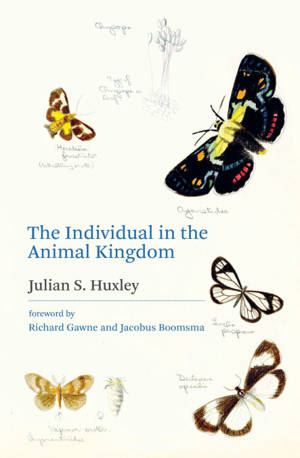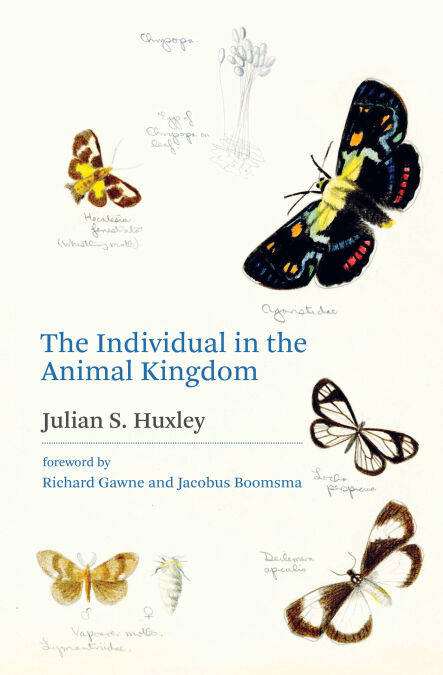
- Afhalen na 1 uur in een winkel met voorraad
- Gratis thuislevering in België vanaf € 30
- Ruim aanbod met 7 miljoen producten
- Afhalen na 1 uur in een winkel met voorraad
- Gratis thuislevering in België vanaf € 30
- Ruim aanbod met 7 miljoen producten
Zoeken
€ 24,63
+ 24 punten
Uitvoering
Omschrijving
The groundbreaking first book by a major evolutionary biologist, published in 1912, that anticipated current thinking about organismal complexity.
Julian Huxley’s The Individual in the Animal Kingdom, published in 1912, is a concise and groundbreaking work that is almost entirely unknown today. In it, Huxley analyzes the evolutionary advances in life’s organizational complexity, anticipating many of today’s ideas about changes in individuality. Huxley’s overarching system of concepts and his coherent logical principles were so far ahead of their time that they remain valid to this day. In part, this is because his explicitly Darwinian approach carefully distinguished between the integrated form and function of hierarchies within organisms and loosely defined, nonorganismal ecological communities.
In The Individual in the Animal Kingdom, we meet a youthful Huxley who uses his commanding knowledge of natural history to develop a nonreductionist account of life’s complexity that aligns with seminal early insights by Darwin, Wallace, Weismann, and Wheeler. As volume editors Richard Gawne and Jacobus Boomsma point out, this work disappeared into oblivion despite its relevance for contemporary research on organismal complexity and major evolutionary transitions. This MIT Press edition gives Huxley’s book a second hearing, offering readers a unique vantage point on the discoveries of evolutionary biology past and present.
Julian Huxley’s The Individual in the Animal Kingdom, published in 1912, is a concise and groundbreaking work that is almost entirely unknown today. In it, Huxley analyzes the evolutionary advances in life’s organizational complexity, anticipating many of today’s ideas about changes in individuality. Huxley’s overarching system of concepts and his coherent logical principles were so far ahead of their time that they remain valid to this day. In part, this is because his explicitly Darwinian approach carefully distinguished between the integrated form and function of hierarchies within organisms and loosely defined, nonorganismal ecological communities.
In The Individual in the Animal Kingdom, we meet a youthful Huxley who uses his commanding knowledge of natural history to develop a nonreductionist account of life’s complexity that aligns with seminal early insights by Darwin, Wallace, Weismann, and Wheeler. As volume editors Richard Gawne and Jacobus Boomsma point out, this work disappeared into oblivion despite its relevance for contemporary research on organismal complexity and major evolutionary transitions. This MIT Press edition gives Huxley’s book a second hearing, offering readers a unique vantage point on the discoveries of evolutionary biology past and present.
Specificaties
Betrokkenen
- Auteur(s):
- Uitgeverij:
Inhoud
- Aantal bladzijden:
- 192
- Taal:
- Engels
Eigenschappen
- Productcode (EAN):
- 9780262362320
- Verschijningsdatum:
- 25/04/2022
- Uitvoering:
- E-book
- Beveiligd met:
- Adobe DRM
- Formaat:
- ePub

Alleen bij Standaard Boekhandel
+ 24 punten op je klantenkaart van Standaard Boekhandel
Beoordelingen
We publiceren alleen reviews die voldoen aan de voorwaarden voor reviews. Bekijk onze voorwaarden voor reviews.







